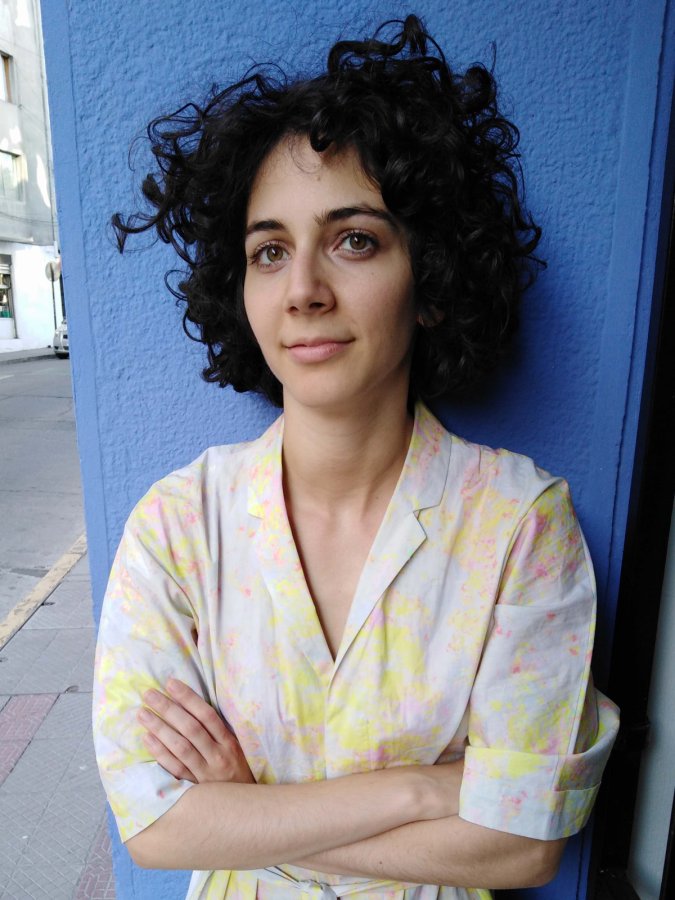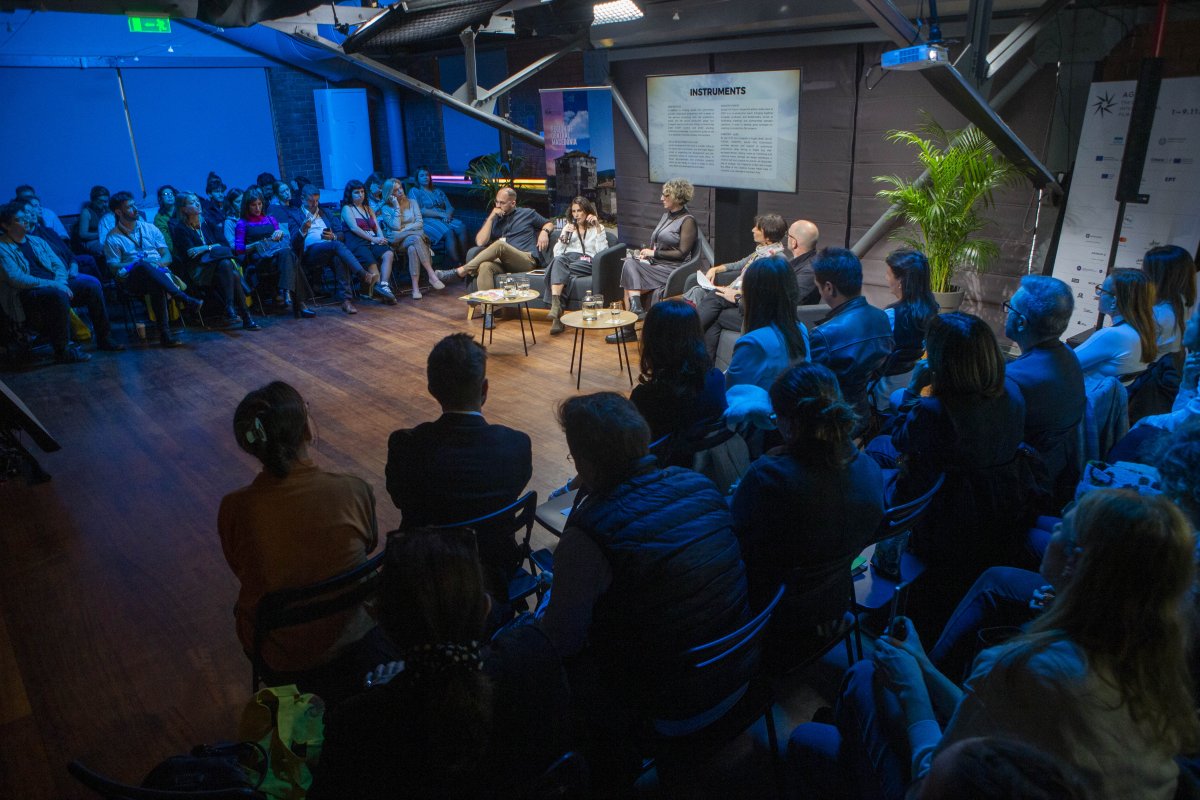The two-time Oscar-winning director and screenwriter Alexander Payne, official guest of the 64th Thessaloniki Film Festival, gave a press conference on Sunday, November 5th, in the John Cassavetes theater, just a few hours before the premiere of his new film The Holdovers at Olympion theater.
The press conference was moderated by the Festival's Head of Programming, Yorgos Krassakopoulos, who welcomed Alexander Payne. "We are delighted to have you with us. We had the pleasure of having you in Evia last summer for the Evia Film Project, and now you are here for your new film, which, if I may say so, is wonderful and intelligent."
"The film was born out of an old film and a TV series. The idea came about when I saw a relatively unknown French film from 1935 by Marcel Pagnol, twelve years ago, at a festival. I thought that the premise was very good and could be the basis for a new film. I put it on my list of ideas for future projects, without doing anything, until five years ago when I read the proposed pilot by a screenwriter for a TV series set in a boarding school, a world I had no experience in. So, I called up David Hemingson and asked if he would be interested in writing something for me," said Alexander Payne.
In response to whether he felt comfortable directing someone else's script rather than his own, he humorously mentioned that it would not be such a bad idea if A.I. wrote a script for him. “I'm trained as a director, but to be a creator, you direct, write, edit. However, I prefer directing”. Mr. Payne commented that writing is a difficult and time-consuming process. The Holdovers is only the second film by the Greek-American filmmaker, for which he has not been involved in writing the script."Let's just say that this is my first film in which I'm directing another screenwriter’s work. I found the screenwriter, gave him the idea for the plot. Together we came up with the story; he showed me numerous drafts. I got involved in the script, although I don't take credit for it. The result, however, had a personal touch for both of us, both for David Hemingson and me.”
Discussing the identity of the film, Alexander Payne stressed that it's easier for him to talk about the process required rather than the themes. "The director is more interested in realizing a film, in seeing it take shape. The art and the process of directing are the fun parts," he said. As for the personal touch of a film, he commented, "Once you have the skeleton of the story, you add the skeleton of the character, the sense of humor, the sense of drama, the sense of passion, the sense of how the story ends. That's how the film becomes personal. You have to separate the personal from the autobiographical. This particular film was more autobiographical for David, who comes from that world, New England, and the boarding schools of that period. For me, it was personal only in terms of its sensitivity."
Regarding the choice of the film's main protagonist, who is also a high school student in reality and a newcomer to cinema, Mr. Payne revealed that it took a long time to find him. "The difficulty with casting youngsters, children or teenagers is that professionals from TV series or films seem overly 'Hollywood.' They certainly don’t look like real kids in a teenage film. However, I don't want to have actors in their 20s pretending to be teenagers. I want real teenagers," stated the director. The lead actor Dominic Sessa was chosen after considering many candidates. "The casting director had looked at 800 candidates. I might have seen about 80. We didn't like any of them. Then we contacted the schools where we were going to shoot and called the drama teachers. That's when we spotted Dominic," mentioned the director.
On his reunion with Paul Giamatti, the lead actor in the Oscar-winning film Sideways (2004), Alexander Payne clarified that the role was written specifically for him. "From the beginning," the director said, speaking in Greek. "Absolutely from the beginning. The character is called Paul. I told the screenwriter from the start that we were writing a role specifically for Paul Giamatti. Then I called and told him we were working on something for him." Regarding what Paul Giamatti brings to the film, Alexander Payne said: "He is the greatest actor. There is nothing he can't do. It's like giving a role to Meryl Streep or Laurence Olivier. You're curious to know what this great actor will do with the role. He really is that good.”
In response to a question about whether this is the most 'Greek' film he has ever made, considering the numerous references to Greece, and whether The Holdovers represents a commentary on modern society and the educational system, Alexander Payne stated: 'It's the first film I've made where someone speaks in ancient Greek. I think the references to the poor who go to the war as opposed to the rich who don't, reflect the present-day too. That was the case 50 years ago, that's always the case. But I don't think they necessarily constitute a commentary on today. It's not even a commentary. It's a recognition of a long-established situation."
Speaking of period films and the nostalgia they convey for a bygone era, on the occasion of his film set in the 1970s, the filmmaker was clear: “When you open a camera, you put time in a capsule, you put time in a bottle. But politically, socially, culturally, I don't know how you can feel nostalgia. At least politically and socially, it's hard to feel nostalgic for any particular period of time. With everything happening in the world, all you think about is whether we'll ever live in a time where we can say the world is moving in the right direction.”
When asked to give advice for young directors from Greece, Alexander Payne said, "Make more comedies." He even referred to comedies from the golden era of Greek cinema. "If you find people you want to collaborate with, try to keep them close to you as much as you can," he added. Concluding, Alexander Payne mentioned that his future plans include a film to be shot in Paris, in French, while he did not rule out a film in Greece, if he could find a script that fascinates him.
The film The Holdovers, starring Paul Giamatti, Da'Vine Joy Randolph, and Dominic Sessa, written by David Hemingson, takes place at a distinguished American college during the Christmas holidays in the 1970s. It is a journey of self-discovery for three diverse characters at a critical juncture in their lives, enriched with tenderness and humor.
















